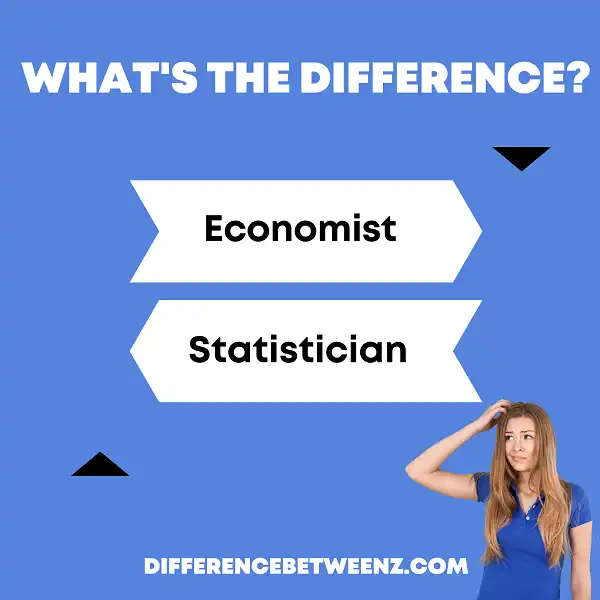Economists and statisticians are often placed in the same category, but they’re actually two distinct professions. Though there’s some overlap in their work, understanding the fundamental differences between economists and statisticians can help you decide which profession to pursue if you’re considering a role either specialized area. In this blog post, we’ll cover what sets each career apart from one another so that you can make an informed decision when choosing your academic or professional path.
Who is Economist?
- An economist is a job title that has been around for centuries. An Economist uses economic theories, models, and data analysis to study how individuals, companies, governments, and organizations make decisions and interact with one another in today’s modern economies.
- Economists provide solutions to a variety of policy problems by developing economic forecasts, advising on public policies, or studying global financial trends. They often become influential members of society as they are able to read the current state of the economy and project what the future may look like.
- Economist has the knowledge of microeconomics, macroeconomics, and econometrics that allows them to recognize large-scale trends in consumer behavior, interest rates, and investment opportunities. There incredible skill set makes them invaluable resources for making intelligent financial choices that can have long-term impacts.
Who is a Statistician?
- Statisticians are invaluable in many fields. Not only do they help to interpret data and draw conclusions from complicated information, but they are experts in the field of research design and implementation.
- Statisticians can use their knowledge to craft valid surveys or experiments that measure accurately what is being studied. The Statistician’s skill set also includes probability theory, data analysis tools, and statistical software like SPSS or SAS.
- Statisticians apply their specialized skills to interpret data and make sense of it for decision-makers. They often use graphical representation methods such as charts and tables to explain the results of their analyses in a way that anyone can understand. Statisticians make the science behind collecting data easier to comprehend and demonstrate the meanings relevant to the study.
Difference between Economist and Statistician
The difference between an Economist and a Statistician can be quite subtle, but they are actually two distinct specialties within the field of economics.
- Economists focus on the broad economic trends that shape economies around the world, while Statisticians specialize in collecting, analyzing, and interpreting data to help explain particular economic events.
- Economists usually look at historical events in order to understand the forces behind them and make predictions about future trends, while Statisticians use their skills with data to explore cause-and-effect relationships between different variables.
While there certainly is some crossover between the two fields, Economists and Statisticians have distinctly different roles when it comes to understanding economic forces.
Conclusion
Both economists and statisticians study data, but they have different approaches. Economists use data to build models that explain how the economy works. Statisticians use data to answer specific questions or test hypotheses. Because of their different goals, economists and statisticians often use different methods. As a result, job prospects for economists and statisticians are quite different. If you’re interested in working with data, consider which field is a better fit for your interests and skill set.


